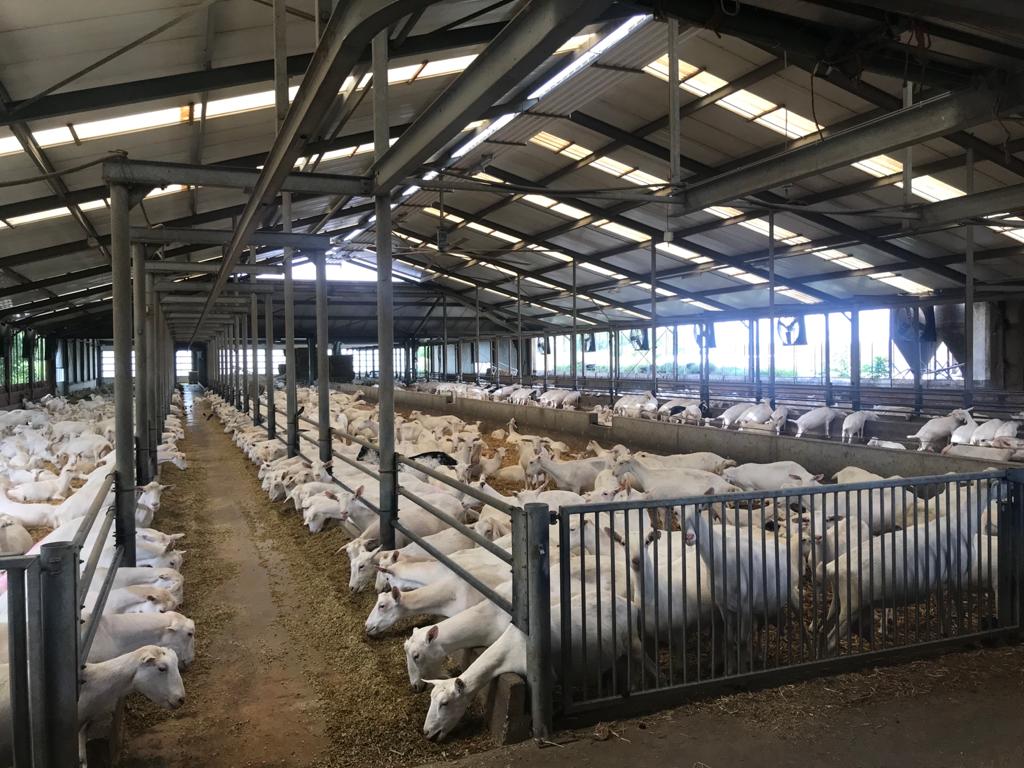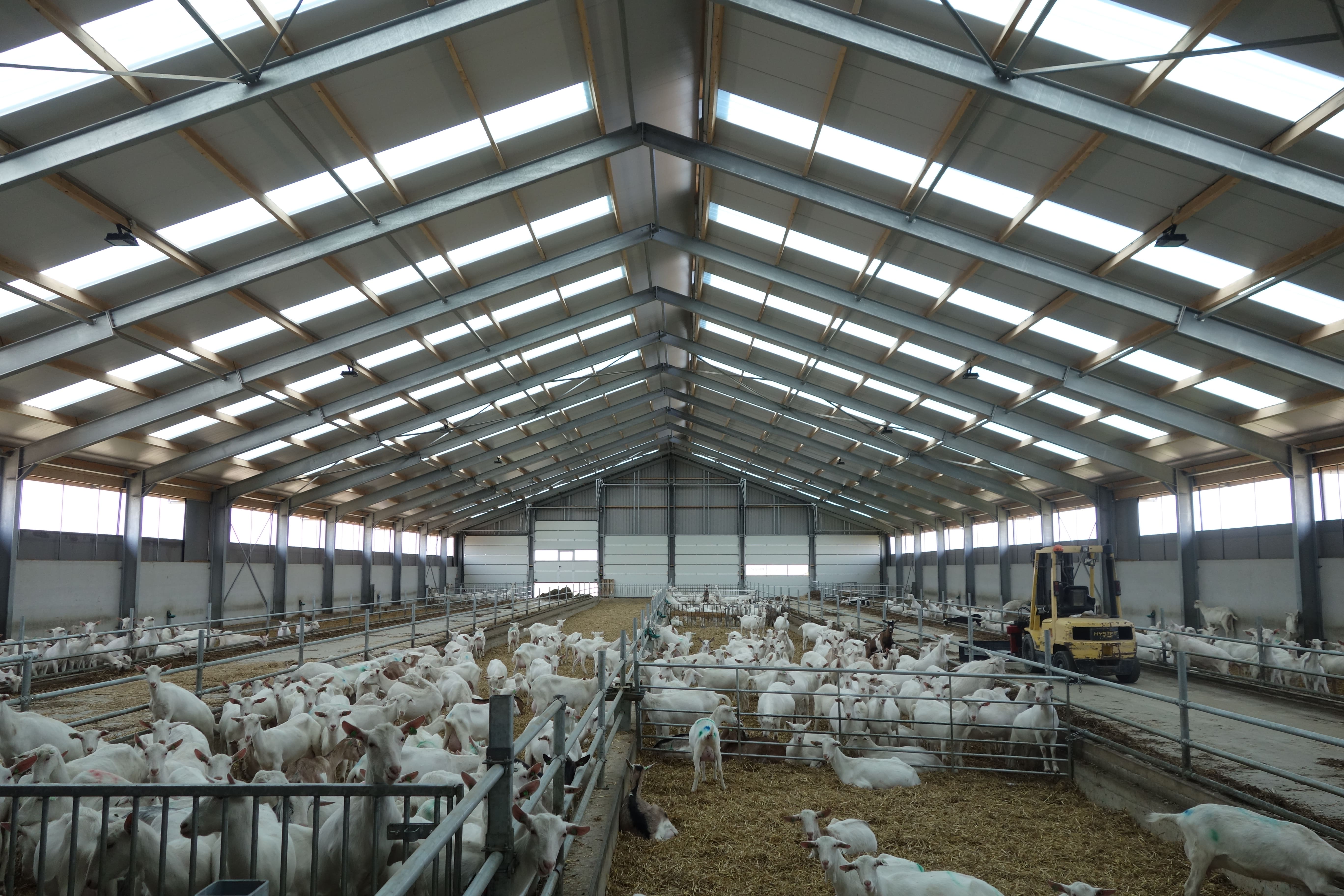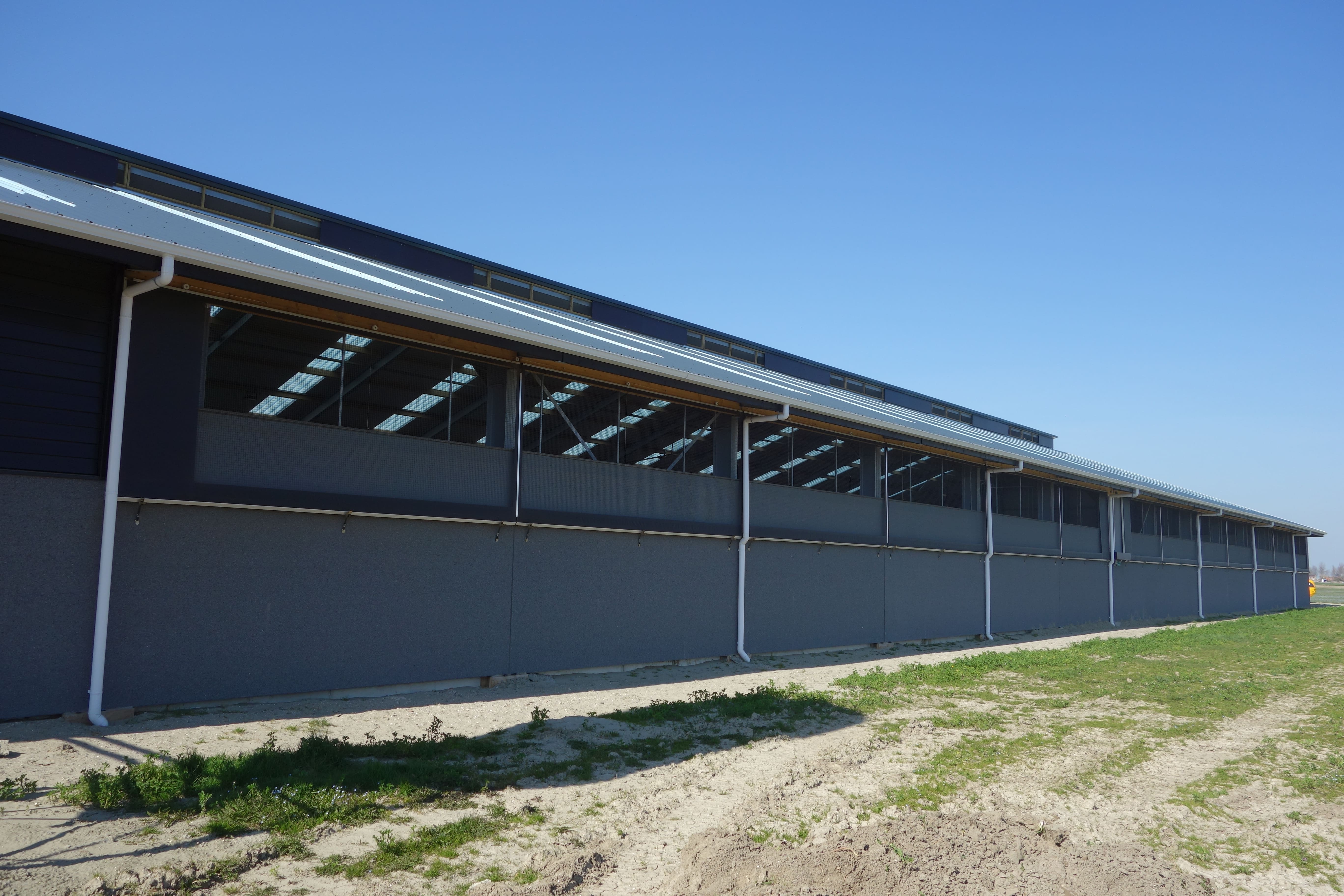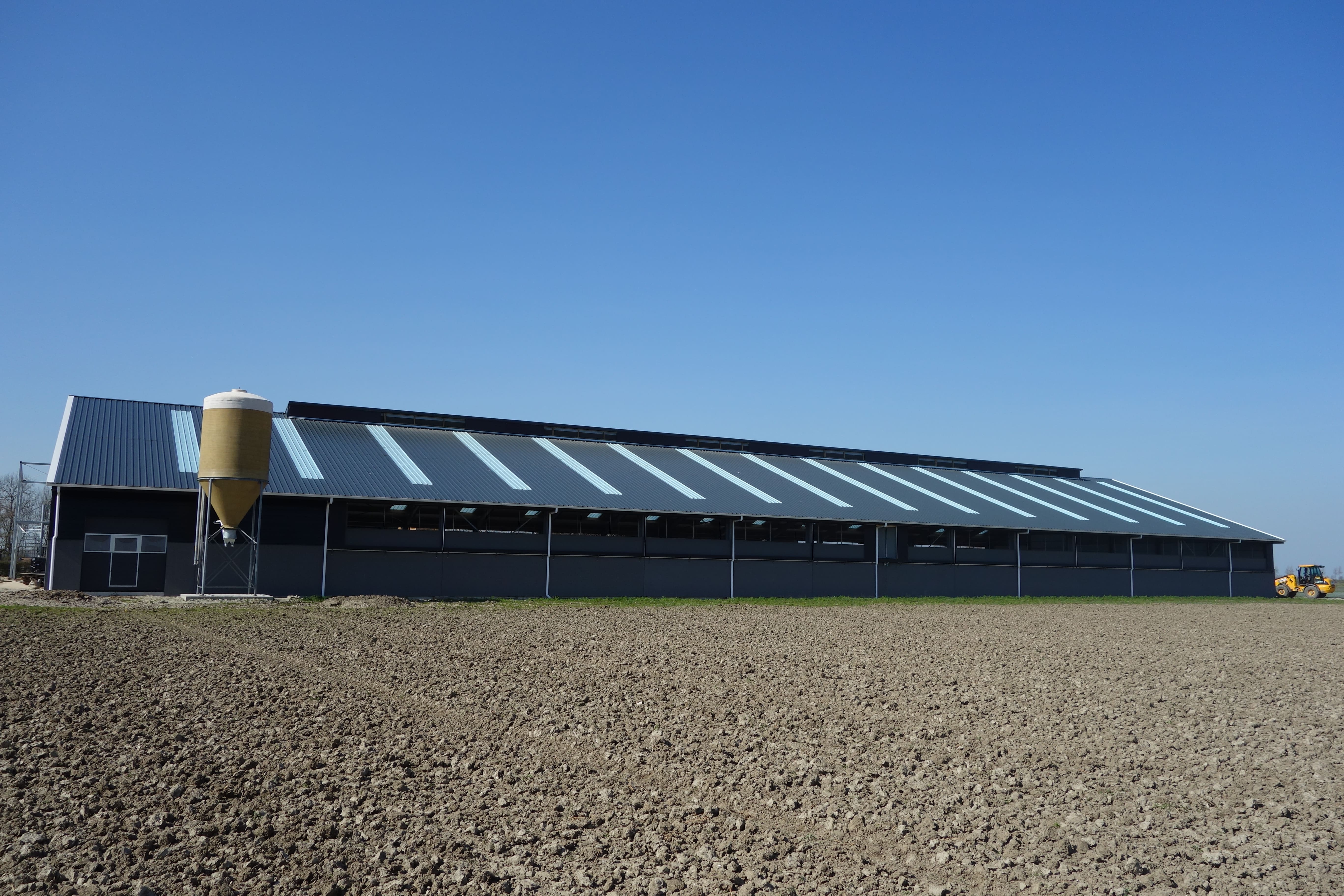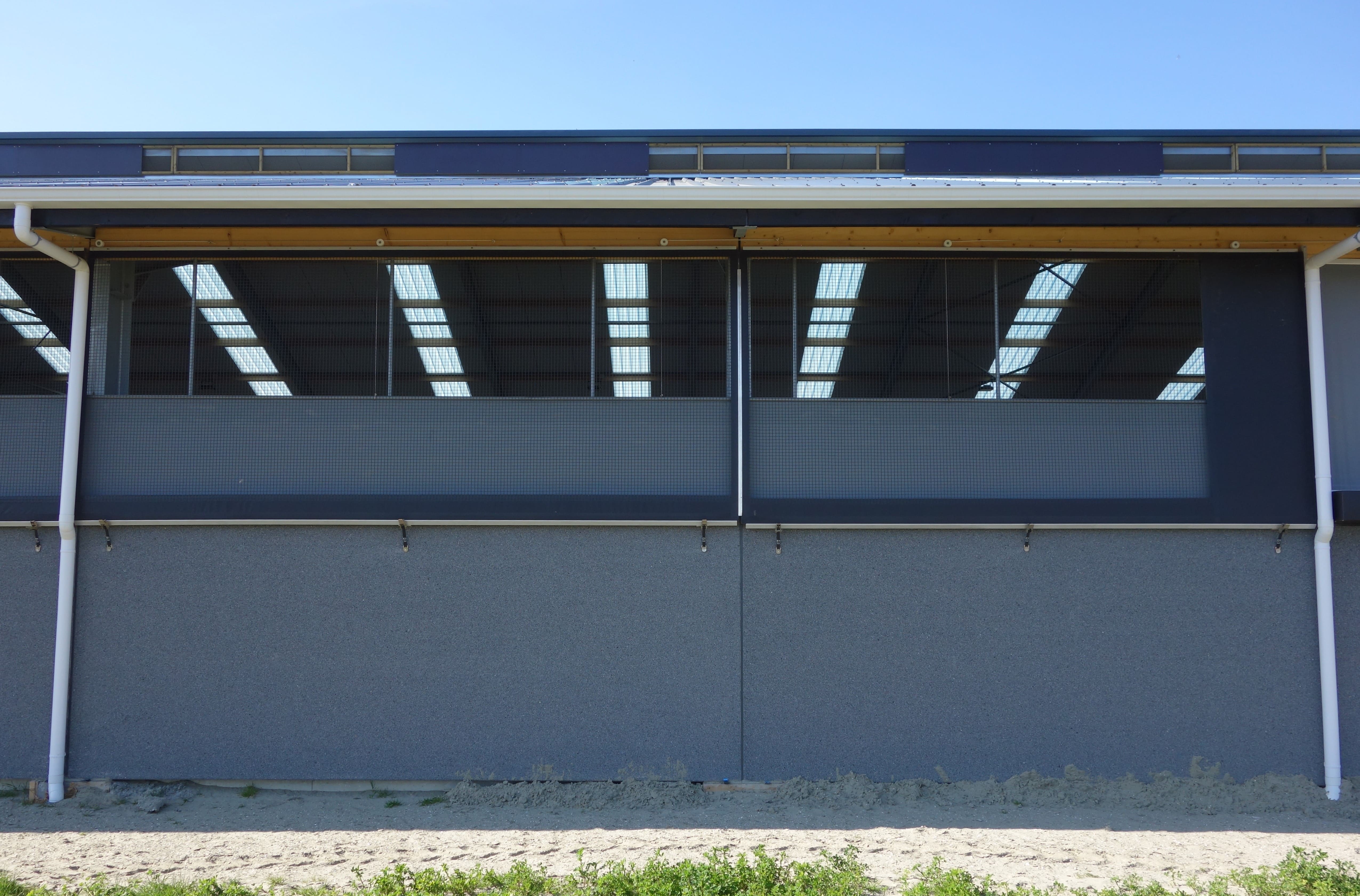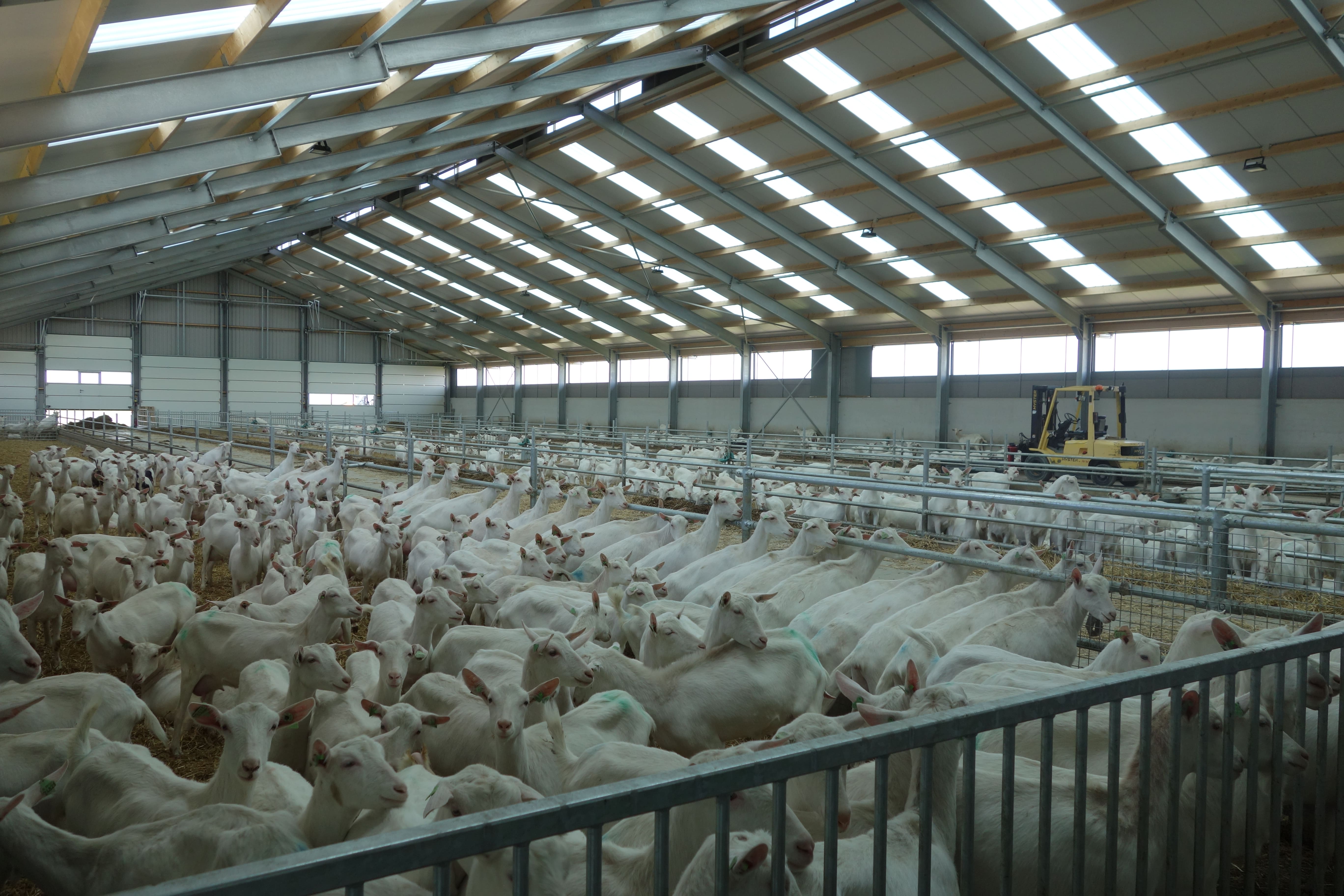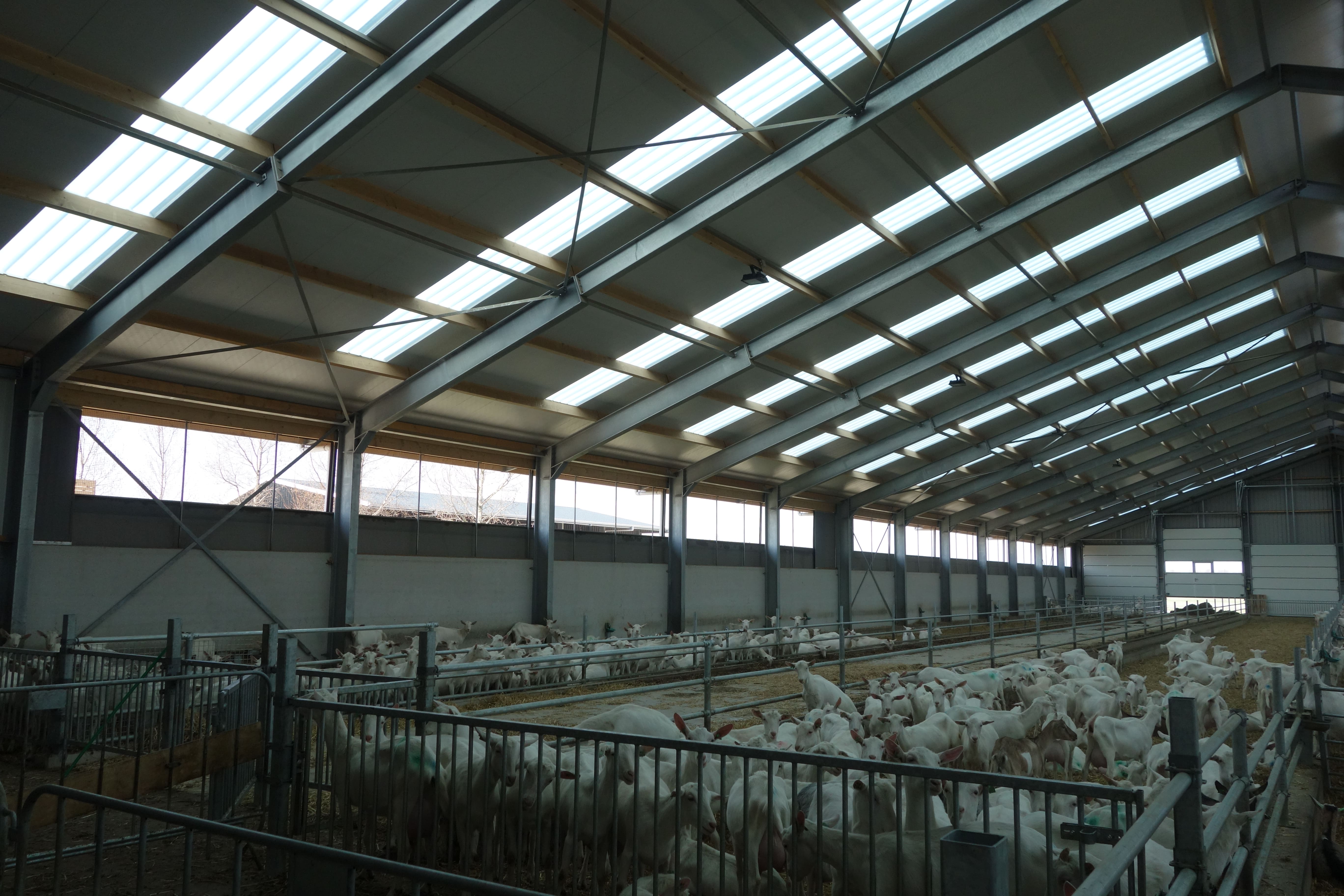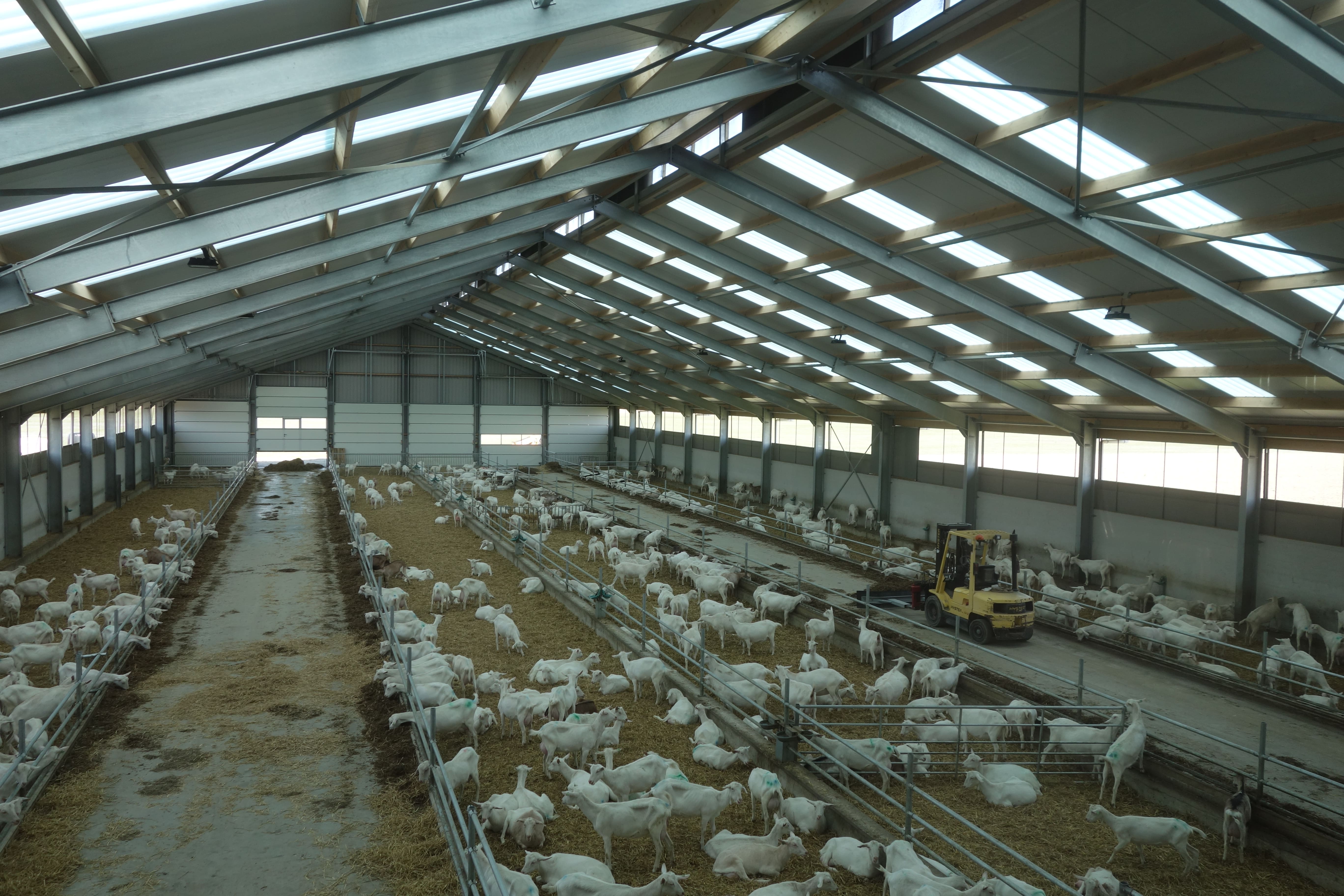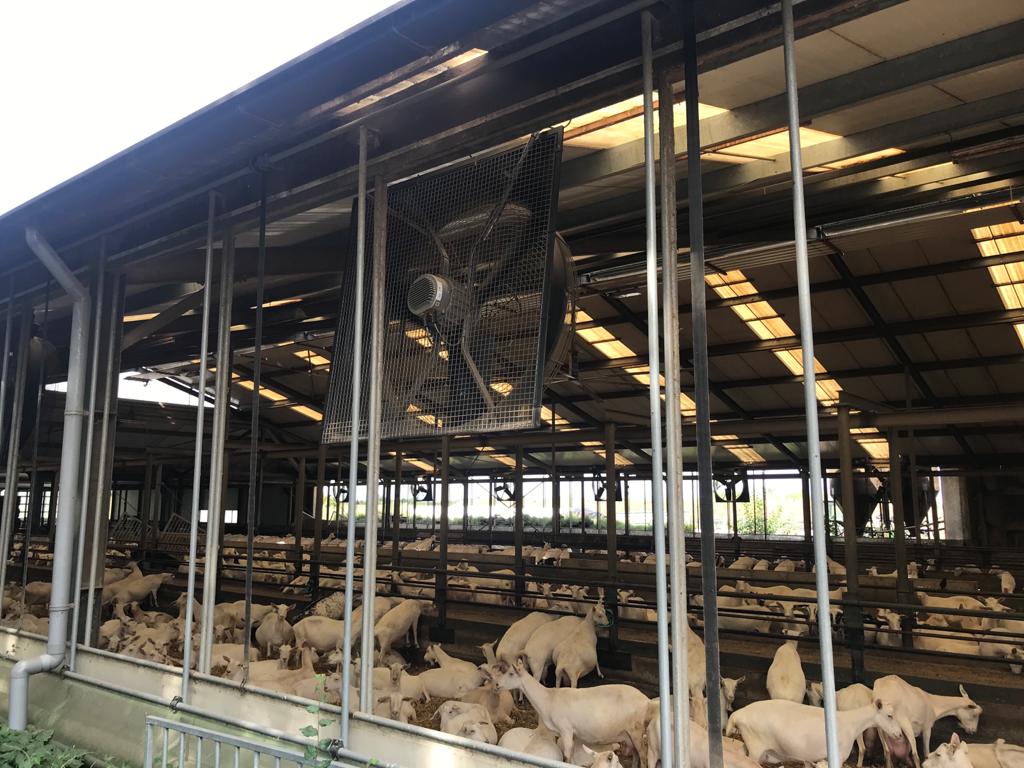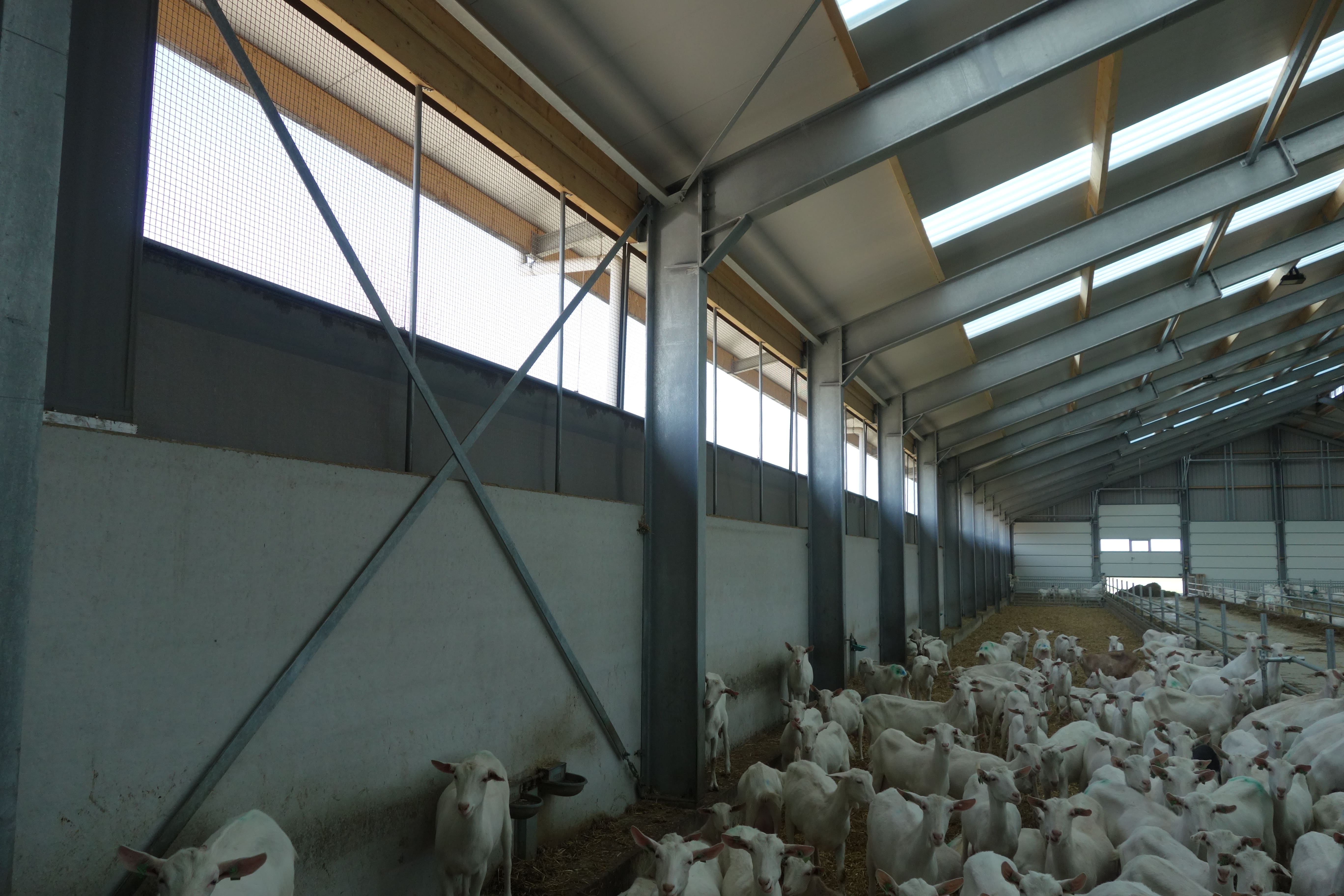Ventilate goat stable
Goats
In order to create an ideal stable climate all year round, ventilation is required. This is achieved by combining natural ventilation and fans.
Ventilating a goat stable is the best and most common ventilation technique. In order to get air flows under control in practice, you can place adjustable sails in front of your stable opening. These adjustable sails can be connected to a climate computer.
Ventilate goat stable- advantages at a glance
- Reduced risk of heat stress
- Ventilate all year round
- Dry air means lower risk of infection
- Ventilation without draught
- One system for each type of goat
- Automatically controllable - climate computer
Reduced risk of heat stress
Ventilating a goat stable has a direct positive influence on the welfare of the animals. In summer, goats can already experience heat stress from 23°C. Sufficient air circulation helps to address this problem and contributes to optimal milk production.
Ventilate all year round
Ventilating a goat stable will be different in winter than in summer. When it's warm, the adjustable system is fully open to ensure maximum air intake. This ventilation is automatically boosted by fans from 23°C, or when there is no wind.
At winter temperatures, the sails are almost completely open. At the top, the air inlet is maintained, without direct draught on the goats. The fans are then turned off.
Dry air means lower risk of infection
In order to prevent the spread of disease, the pursuit of an optimal stable climate is of great importance. Moreover, the number of goats per stable has strongly increased in recent years, which is accompanied by increased disease pressure.
Ventilation makes the stable drier and makes it more difficult for germs to survive. Rearing goats also ensures optimal air renewal.
Ventilation without draught
It is important to have fresh air, without draughts caused by too fast air currents. Both the natural ventilation by means of tarpaulins, as well as the fans, are very important to this.
With natural ventilation, the air enters the stable as high as possible through the top, in order to achieve a nice flow in the stable without draughts. In this way a natural cross ventilation is created: the fresh air enters via open sails on one side, and is discharged via the opposite side.
It is only from 23°C onwards that the fans will increase the natural ventilation and provide additional cooling. The animals therefore never experience draughts.
Cross or length ventilation
Depending on the type of construction and the situation, the fans can reinforce the natural cross ventilation, or they are chosen to be placed in function of length ventilation.
We will come to you to see the situation.
One system for each type of goat
When ventilating a goat stable, the needs of the different animals must be taken into account. Rearing goats need less ventilation compared to milk production goats. The sails of the adjustable systems in rearing goats are composed differently than milk production goats.
At the place in the stable where reared goats are housed, the sails of the adjustable system will have a different density than in adult goats. The climate computer is then set differently per age group.
Fans are also placed and set according to the needs of the respective age category.
Moreover, in the case of milk production goats, it is very important to keep birds out of the way in order to prevent the spread of disease among themselves. Here you can work with a bird-resistant mesh that also protects the rotating parts, which makes the system much safer.
Automatically controllable - climate computer
A climate computer ensures that a goat stable is ventilated naturally and automatically. The sails are controlled with it.
The climate computer takes into account:
- Wind speed
- Wind direction
- Temperature in the stable
- Temperature outside the stable
- Air humidity
- Rain
- Light level
Benefits of a climate computer at a glance:
- Spond immediately to weather changes
- Never chasing after the facts
- 24h/24h regulated
- All sails are arranged, so they do not work against each other
- Adaptable if required
- Fans are controlled in relation to inside temperature
- Fogging can be controlled in extreme heat
- Nozzles in the stable can be controlled in extreme heat
- Heating in e.g. robot rooms can be controlled in case of extreme cold
- Lighting can be controlled
Read more about this on our blog 'climate computer'.
